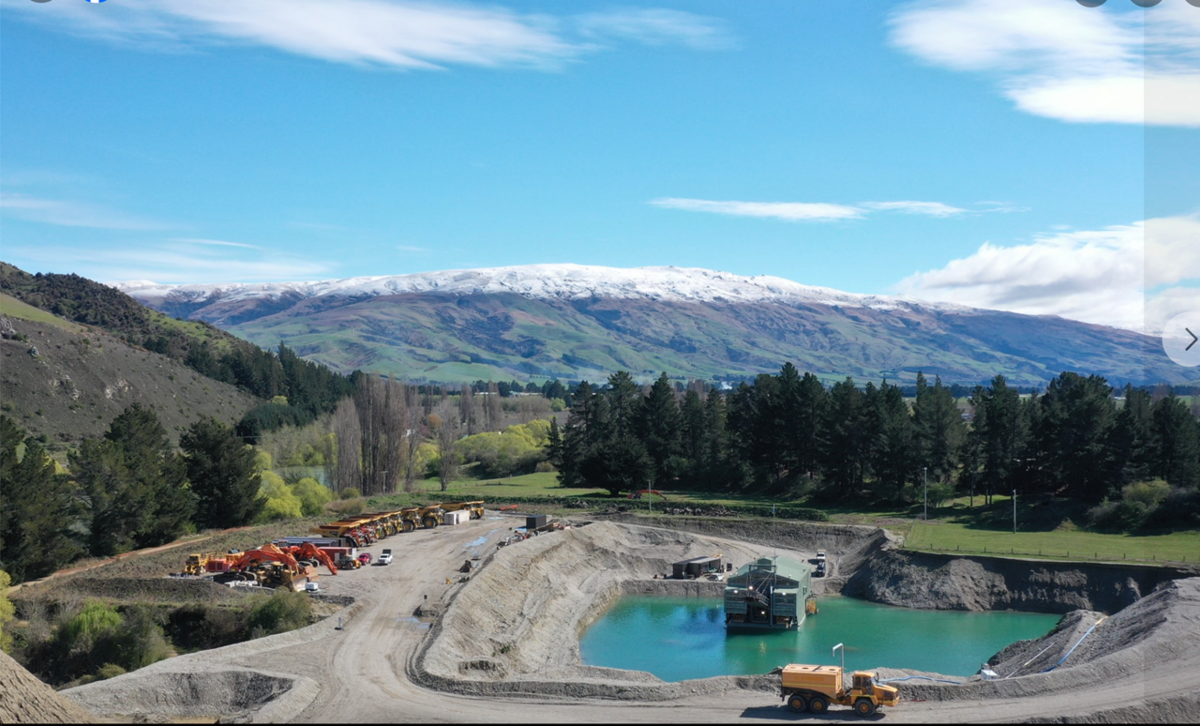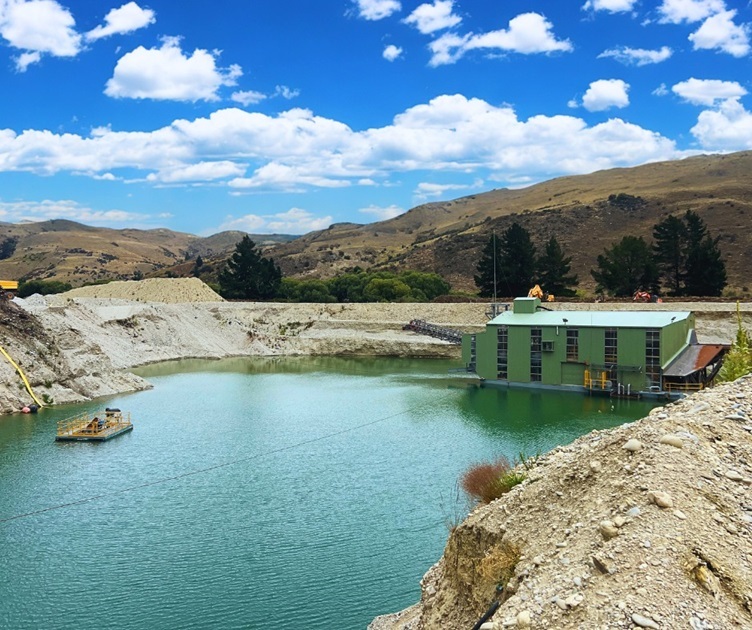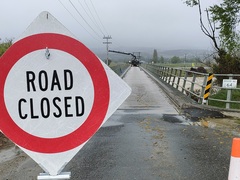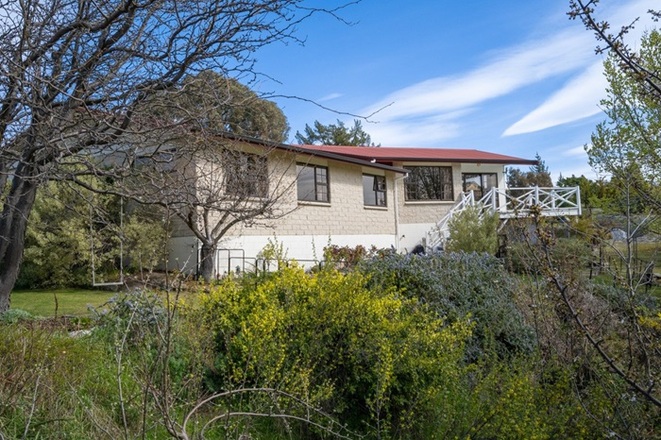Mining company defends activity in Millers Flat
Aimee Wilson
04 October 2024, 4:30 PM
 Hawkeswood Mining was granted resource consents in September for its alluvial gold mine at Millers Flat for 10 years. PHOTO: Supplied
Hawkeswood Mining was granted resource consents in September for its alluvial gold mine at Millers Flat for 10 years. PHOTO: SuppliedThe Hawkeswood Mining company has been forced to pay back royalties to the Crown and make a donation to charity, after illegally mining at Millers Flat before its permit had been granted.
In April, the Ministry of Business, Innovation and Employment (MBIE) filed charges in the Dunedin District Court against the company, when it was found to have conducted gold mining on a permit that only allowed exploration activities – an offence under the Crown Minerals Act 1991.
The mining company refutes the claims and said MBIE was “aggressively” targeting illegal operations, and felt they had been mistakenly targeted.
Hawkeswood Mining operations manager Simon Johnston said the company initiated what they considered an exploration test pit project in November 2022.

The Hawkeswood dredge ready for operation. PHOTO: Supplied
From their perspective, its permit covered the scope of the test pitting activities being undertaken.
“However, MBIE interpreted the scale of our test pit differently, classifying it as mining rather than exploration due to the volume of material involved,” he said.
In a statement by MBIE, it said a diversion agreement delivered a resolution that benefited all parties, including reparation to the local community.
New Zealand Petroleum and Minerals national manager of compliance Phil Latimer said the vast majority of its mining operators here in New Zealand understand and meet their responsibilities but unfortunately, as with every sector, there are a few exceptions.
“An exploration permit grants the right to explore for identified minerals to evaluate the viability of mining those resources. Typically, the types of activities involved aren’t significantly invasive.
“We became aware that Hawkeswood Mining had been mining prior to being granted a mining permit when we saw satellite imagery of the site showing large-scale opencast mining. At the time Hawkeswood Mining had an exploration permit," he said.
“Following an investigation, which included detailed site analysis by ministry geologists, we discovered the company had screened a large volume of material and recovered a considerable amount of gold. The work was of a nature and scale not authorised by an exploration permit."
New Zealand Petroleum and Minerals is seeing an increasing number of operators undertaking mining activity under exploration permits.
Three operators are currently before the courts on charges related to illegal mining.
“We are a fair regulator, and we are focused on supporting the sector to get to work but make no mistake, there is no room for cowboys in our sector,” Phil said.
“To their credit, once MBIE became involved Hawkeswood Mining took no further action at the mine, and engaged positively with the investigation, and has now accepted responsibility for the offending.”
Simon said while the company took some responsibility for its “shortcomings,” he’d observed significant changes in the consenting processes across New Zealand since 2020.
“I strongly believe that it's critical to thoroughly understand the resource in the ground, especially for a project of this magnitude like the Millers Flat alluvial project, before proceeding with the expensive and lengthy consenting processes.
“It is my view that MBIE currently lacks a clear method for quantifying the specific volume that distinguishes test pitting from illegal mining, and this has unfortunately led to our situation.
“The reality is, I stand by the fact that we were not illegally mining. The size and scope of our test pit were necessary to properly explore the alluvial resource and mining methodology at Millers Flat.”







